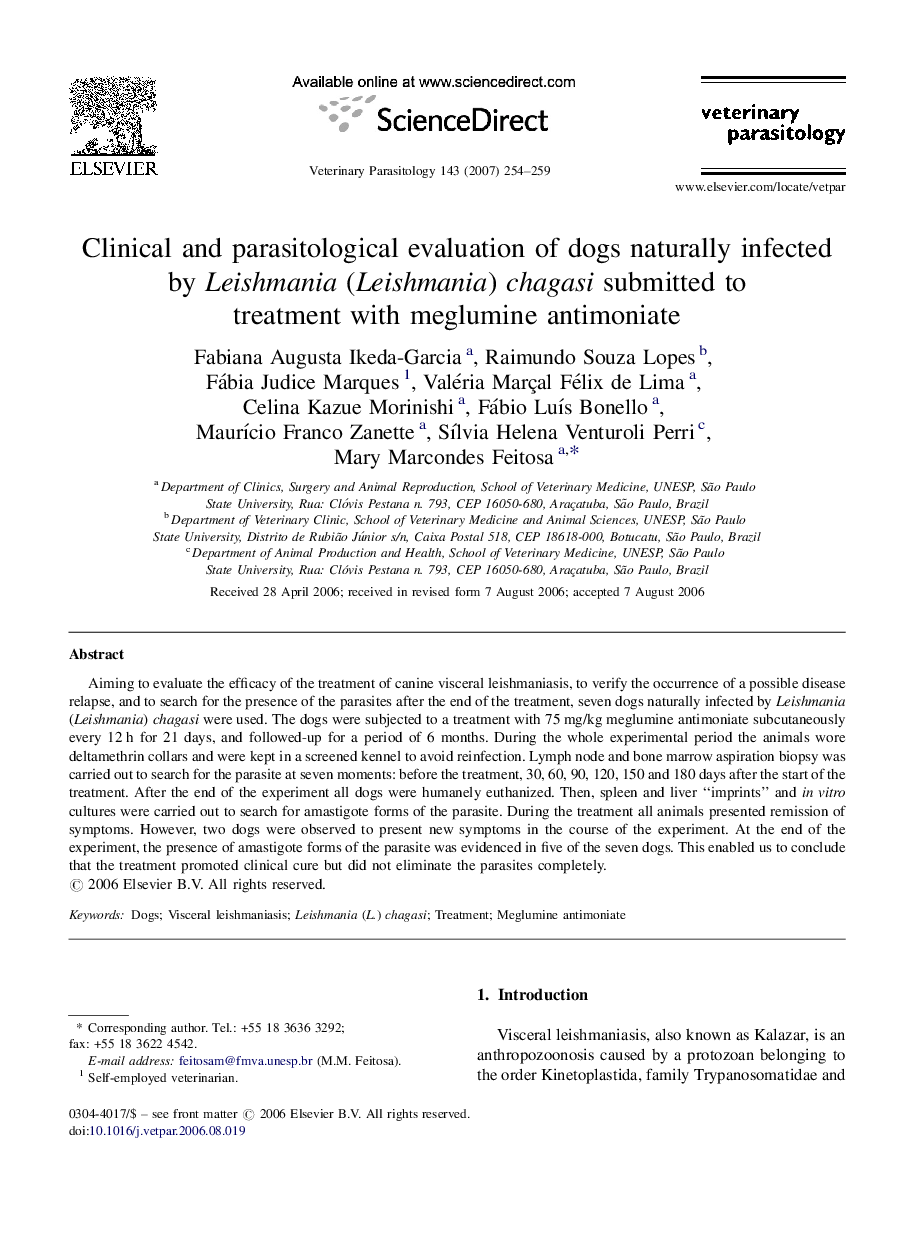| Article ID | Journal | Published Year | Pages | File Type |
|---|---|---|---|---|
| 2472089 | Veterinary Parasitology | 2007 | 6 Pages |
Aiming to evaluate the efficacy of the treatment of canine visceral leishmaniasis, to verify the occurrence of a possible disease relapse, and to search for the presence of the parasites after the end of the treatment, seven dogs naturally infected by Leishmania (Leishmania) chagasi were used. The dogs were subjected to a treatment with 75 mg/kg meglumine antimoniate subcutaneously every 12 h for 21 days, and followed-up for a period of 6 months. During the whole experimental period the animals wore deltamethrin collars and were kept in a screened kennel to avoid reinfection. Lymph node and bone marrow aspiration biopsy was carried out to search for the parasite at seven moments: before the treatment, 30, 60, 90, 120, 150 and 180 days after the start of the treatment. After the end of the experiment all dogs were humanely euthanized. Then, spleen and liver “imprints” and in vitro cultures were carried out to search for amastigote forms of the parasite. During the treatment all animals presented remission of symptoms. However, two dogs were observed to present new symptoms in the course of the experiment. At the end of the experiment, the presence of amastigote forms of the parasite was evidenced in five of the seven dogs. This enabled us to conclude that the treatment promoted clinical cure but did not eliminate the parasites completely.
